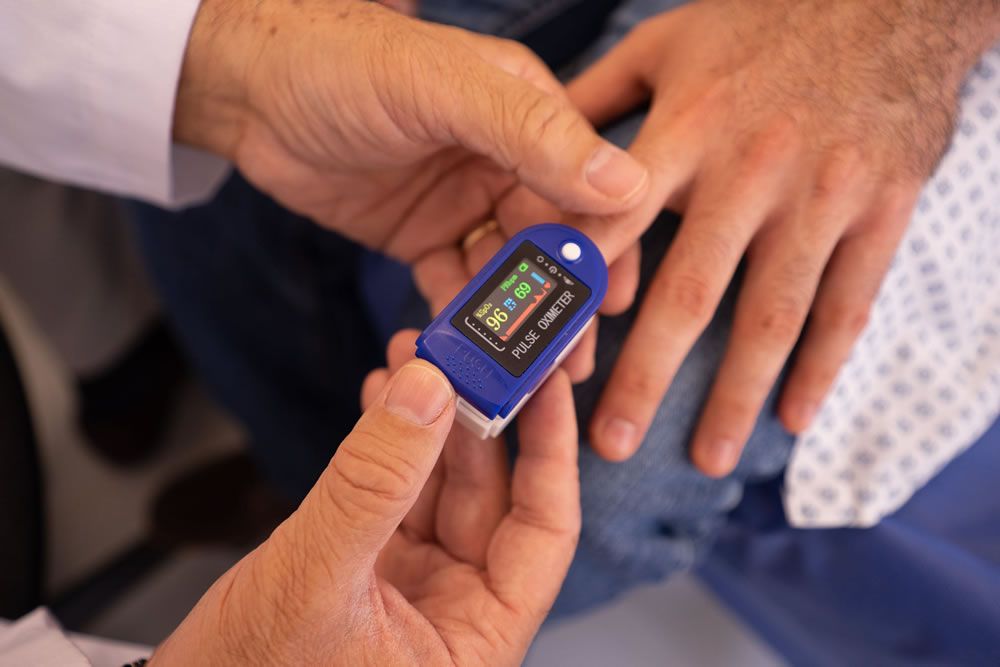靈氣與心臟病 Reiki and Heart Disease

靈氣與心臟病 Reiki and Heart Disease
據世界衛生組織表示,心血管疾病目前是全球第一大死因。僅在 2012 年,就有大約 1750 萬人死於這些疾病,而且這個數字每年都在增加,直到現在。由於這些嚴重的疾病,任何有心臟病風險或已被診斷出患有心臟病的人都必須盡其所能改善心血管系統的健康。對於對支持傳統醫療保健與對自然、非侵入性選擇感興趣的人來說,靈氣已被證明是一種寶貴的工具。
為什麼心臟病這麼嚴重?
大多數心臟病都與動脈粥狀硬化有關,動脈粥狀硬化是動脈內壁斑塊堆積時發生的一種情況。如果積累了足夠多的斑塊,血液就很難流過血管。當阻塞變得嚴重時,可能會發生心臟病發作和/或中風。如果嚴重或未經治療,心臟病發作可導致心力衰竭、心臟破裂和心律異常。同樣,嚴重和/或未經治療的中風會導致癱瘓、記憶力減退、疼痛和行為改變。這些情況中的任何一個都可能是致命的。
靈氣如何幫助心臟病患者?
靈氣是一種利用體內能量的自然流動來促進癒合的治療形式。那些從事靈氣治療的人尋求並解決可能導致疾病和疼痛的能量阻塞與能量流的中斷處。對於患有心臟病或有心臟病風險的人,這些治療的目標是改善心臟和循環系統的健康,減輕與疾病相關的症狀並提高個人的整體生活質量。
當一個人接受靈氣治療時,他或她以坐姿或仰臥位休息,而練習者將他或她的手放在特定位置。從業者可以將他或她的手稍微放在客戶的上方,或者靈氣從業者可以輕輕地觸碰客戶。在大多數靈氣治療中,練習者將使用多達 10-15 個不同的姿勢,每個姿勢將保持約兩到五分鐘。
靈氣和心臟病 - 它有什麼幫助?
靈氣療法對心臟病患者的一些潛在益處包括:
改善心率變異性。
靈氣可以改善心臟病發作患者的心率變異性。
目前的相關研究認為更好的心率變異性表示心臟病患者的預後會更好,靈氣能使其成為非常理想的效果。
改善心情。
壓力、抑鬱和其他消極的精神狀態會增加心臟病發作和其他不良事件的風險。靈氣可以改善有心血管風險或有心血管問題病史的患者的情緒,從而降低不良事件的風險。
減少焦慮。
焦慮會導致血壓和心率升高,這兩者都會加劇心臟的問題。靈氣可以減少焦慮,從而保護心臟免受損害。
改善睡眠。
研究表明,睡眠習慣不良的人患心血管疾病的風險更高。 靈氣可以改善睡眠質量,從而降低患心臟病的風險。 改善睡眠也有利於已被診斷出患有心臟病的患者。
減少疼痛感。
患有心臟病的人,以及已經中風或心臟病發作的人,可能會因為他們的病情而感到疼痛。 接受靈氣治療的患者經常報告疼痛感減輕。 因此基於這個原因,靈氣可能對心臟病患者有益。
耶魯大學的研究人員進行的一項研究
該研究試圖確定靈氣療法是否對三天前心臟病發作的患者有益。該研究將患者分為三組:一組安靜休息,第二組聆聽冥想音樂,第三組接受靈氣治療。接受靈氣治療組成為三組中,心率變異性最大的。與研究中的其他兩組成員相比,靈氣組的成員在精神狀態方面也有更顯著的改善。這些結果表明靈氣可能有助於治愈過程並改善心臟病發作後患者的預後。
涉及疼痛和焦慮的靈氣研究回顧
2014 年,匹茲堡大學的研究人員開始回顧過去的研究數據,這些研究旨在評估,靈氣療法對疼痛和焦慮的影響。研究人員回顧了總共七項研究,發現大多數研究表示,參加靈氣治療的患者在疼痛和焦慮方面都有統計學上的顯著改善。然而,研究人員也表示,應該對這個主題進行進一步的研究。
開始靈氣治療
如果您有心臟病史,或者您有一個或多個心臟病發展的風險因素,在您的治療或預防方案中加入靈氣可能是有益的。 該研究支持靈氣改善與心臟健康相關的因素以及心臟事件後出現的不適症狀的能力。 此外,由於靈氣是一種非侵入性治療選擇,因此此類療法出現並發症和副作用的風險極低。
延伸閱讀:
Reiki and Heart Disease
Cardiovascular diseases are currently the number one cause of death worldwide, according to the World Health Organization. Approximately 17.5 million people died from these illnesses just in 2012, and the number continues to increase with each passing year into the present. Because of the severity of these diseases, it is important for anyone who is at risk of heart disease or has already been diagnosed with heart disease to do what they can to improve the health of the cardiovascular system. For people interested in natural, non-invasive options to support their traditional medical care, Reiki has proven to be a valuable tool.
Why is Heart Disease So Serious?
Most heart disease is related to atherosclerosis, which is a condition that occurs when plaque builds up on the inner walls of the arteries. If enough plaque accumulates, it becomes difficult for blood to flow through the vessel. When blockages become severe, heart attacks and/or strokes can occur. If severe or untreated, heart attacks can lead to heart failure, heart rupture, and abnormal heart rhythms. Likewise, severe and/or untreated strokes can lead to paralysis, memory loss, pain, and behavioral changes. Either of these conditions also has the potential to be fatal.
How Can Reiki Help Heart Disease Patients?
Reiki is a form of therapy that utilizes the natural flow of energy within the body to facilitate healing. Those who engage in Reiki treatments seek to dissolve energy blockages and disruptions in energy flow that may be contributing to illnesses and pain. For individuals with heart disease or a risk of heart disease, the goal of these treatments is to improve the health of the heart and the circulatory system, alleviate symptoms associated with the condition and improve the individual’s overall quality of life.
When an individual undergoes Reiki treatment, he or she rests in a seated or supine position while a practitioner places his or her hands in specific positions. The practitioner may place his or her hands slightly above the client, or the practitioner may touch the client gently. During most Reiki sessions, the practitioner will utilize up to 10-15 different positions, each of which will be held for two to five minutes.
Reiki and Heart Disease - How can it help?
Some of the potential benefits of Reiki treatment for people with heart disease include:
Improved heart rate variability.
Reiki may improve heart rate variability among patients who have had a heart attack.
Studies have linked better heart rate variability to a better prognosis for heart patients, making this a highly desirable effect of Reiki.
Improved mood.
Stress, depression, and other negative mental states raise the risk of heart attack and other adverse events. Reiki may improve the mood of patients with cardiovascular risk or a history of cardiovascular problems, thus reducing the risk of adverse events.
Reduced anxiety.
Anxiety causes increased blood pressure and heart rate, both of which can exacerbate heart problems. Reiki may reduce anxiety, thus protecting the heart from damage.
Improved sleep.
Research has shown that people with poor sleep habits are at a higher risk of developing cardiovascular disease. Reiki may improve the quality of sleep, thus reducing the risk of heart disease. Improved sleep is also beneficial to patients who have already been diagnosed with a heart problem.
Reduction in pain sensations.
People with heart disease, as well as those who have already experienced a stroke or heart attack, may feel pain because of their condition. Patients who undergo Reiki treatments often report a reduction in pain sensations. Thus, Reiki may be beneficial to heart patients for this reason.
Research on Reiki and Heart Disease
Researchers have explored the effect of Reiki on patients with a variety of different conditions, including heart disease. Some of the studies that have explored the relationship between Reiki and this condition include:
Yale’s Study on Reiki and Heart Attack Patients
A study performed by researchers at Yale University sought to determine whether Reiki treatments were beneficial to patients who had suffered a heart attack three days prior. The study broke patients into three groups: one group that rested quietly, a second group that listened to meditative music and a third group that underwent Reiki treatment. The group that underwent Reiki treatment experienced the greatest amount of change in heart rate variability of the three groups. Members of the Reiki group also experienced a more significant improvement in mental state than members of the other two groups in the study. These results indicate that Reiki may aid in the healing process and improve the prognosis of the patient following a heart attack.
A Review of Reiki Studies Involving Pain and Anxiety
In 2014, researchers at the University of Pittsburgh set out to review past studies that had been conducted to evaluate the effect of Reiki treatments on pain and anxiety. The researchers reviewed a total of seven studies and found that the majority of studies showed a statistically significant improvement in both pain and anxiety among patients who had participated in Reiki treatment sessions. However, researchers also indicated that further research on this topic should be performed.
喜欢我的作品吗?别忘了给予支持与赞赏,让我知道在创作的路上有你陪伴,一起延续这份热忱!

- 来自作者
- 相关推荐